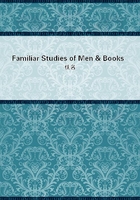
第60章
Of this capital achievement and, with it, of Villon's style in general, it is here the place to speak. The LARGE TESTAMENT is a hurly-burly of cynical and sentimental reflections about life, jesting legacies to friends and enemies, and, interspersed among these many admirable ballades, both serious and absurd. With so free a design, no thought that occurred to him would need to be dismissed without expression; and he could draw at full length the portrait of his own bedevilled soul, and of the bleak and blackguardly world which was the theatre of his exploits and sufferings. If the reader can conceive something between the slap-dash inconsequence of Byron's DON JUAN and the racy humorous gravity and brief noble touches that distinguish the vernacular poems of Burns, he will have formed some idea of Villon's style. To the latter writer - except in the ballades, which are quite his own, and can be paralleled from no other language known to me - he bears a particular resemblance. In common with Burns he has a certain rugged compression, a brutal vivacity of epithet, a homely vigour, a delight in local personalities, and an interest in many sides of life, that are often despised and passed over by more effete and cultured poets. Both also, in their strong, easy colloquial way, tend to become difficult and obscure; the obscurity in the case of Villon passing at times into the absolute darkness of cant language. They are perhaps the only two great masters of expression who keep sending their readers to a glossary.
"Shall we not dare to say of a thief," asks Montaigne, "that he has a handsome leg?" It is a far more serious claim that we have to put forward in behalf of Villon. Beside that of his contemporaries, his writing, so full of colour, so eloquent, so picturesque, stands out in an almost miraculous isolation. If only one or two of the chroniclers could have taken a leaf out of his book, history would have been a pastime, and the fifteenth century as present to our minds as the age of Charles Second. This gallows-bird was the one great writer of his age and country, and initiated modern literature for France. Boileau, long ago, in the period of perukes and snuff-boxes, recognised him as the first articulate poet in the language; and if we measure him, not by priority of merit, but living duration of influence, not on a comparison with obscure forerunners, but with great and famous successors, we shall instal this ragged and disreputable figure in a far higher niche in glory's temple than was ever dreamed of by the critic. It is, in itself, a memorable fact that, before 1542, in the very dawn of printing, and while modern France was in the making, the works of Villon ran through seven different editions. Out of him flows much of Rabelais; and through Rabelais, directly and indirectly, a deep, permanent, and growing inspiration.
Not only his style, but his callous pertinent way of looking upon the sordid and ugly sides of life, becomes every day a more specific feature in the literature of France. And only the other year, a work of some power appeared in Paris, and appeared with infinite scandal, which owed its whole inner significance and much of its outward form to the study of our rhyming thief.
The world to which he introduces us is, as before said, blackguardly and bleak. Paris swarms before us, full of famine, shame, and death; monks and the servants of great lords hold high wassail upon cakes and pastry; the poor man licks his lips before the baker's window; people with patched eyes sprawl all night under the stalls; chuckling Tabary transcribes an improper romance; bare-bosomed lasses and ruffling students swagger in the streets; the drunkard goes stumbling homewards; the graveyard is full of bones; and away on Montfaucon, Colin de Cayeux and Montigny hang draggled in the rain. Is there nothing better to be seen than sordid misery and worthless joys? Only where the poor old mother of the poet kneels in church below painted windows, and makes tremulous supplication to the Mother of God.
In our mixed world, full of green fields and happy lovers, where not long before, Joan of Arc had led one of the highest and noblest lives in the whole story of mankind, this was all worth chronicling that our poet could perceive. His eyes were indeed sealed with his own filth. He dwelt all his life in a pit more noisome than the dungeon at Meun. In the moral world, also, there are large phenomena not cognisable out of holes and corners. Loud winds blow, speeding home deep-laden ships and sweeping rubbish from the earth; the lightning leaps and cleans the face of heaven; high purposes and brave passions shake and sublimate men's spirits; and meanwhile, in the narrow dungeon of his soul, Villon is mumbling crusts and picking vermin.